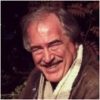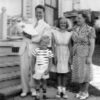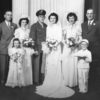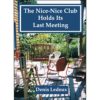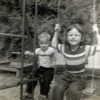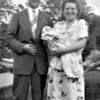People are driven to express themselves. Each of us has a story and an urge to tell it. In my estimation no other medium is as effective in revealing the self as the irreplaceable memoir.
Below are thoughts of various media for self-expression.
Flash Memoir
In a world of texting and Twitter, the urge to self-express is constricted but still vibrant. A new ‘literary genre’ called Flash Memoir has emerged: storytelling within the confines of six words. (It’s close relative is Flash Fiction!) The most famous of these Flash Writings is “For sale: baby shoes. Never worn.” Attributed to Mr. Earnest Hemingway, it is purported to be a ‘novel’ produced to win a $10 bet. For writers less gifted than Mr. Hemingway, the best I can say about Flash Memoir is that it is brief. Most examples compel me to edit for wordiness.
Poignant as Hemingway’s terse ‘novel’ may be, too much is left unsaid. If one calls six words a ‘novel’, then arguably, the name on a headstone followed by the birth and death dates is a ‘memoir’. But that hyphen separating those dates doesn’t measure up.
Speed and brevity are not always an advance.
Letters
One long step backwards in our march to progress is the loss of writing personal letters. When did you last get a letter? I know people who have never, ever gotten a letter.
Consider what that loss means. My mother recently sent me a packet of letters written decades ago by her mother. Gramma wrote Mom weekly and frequently more often. It was a conversation.
What a revelation. Each letter revealed Gramma’s personality and style. Her distinct voice and gentle wit brought innocuous events to life in a few lines. Descriptions of others were warm, revealing and conversational. Her hand writing was beautiful. They don’t teach cursive in schools anymore.
Historians always mined old letters for hints about the lives of writers beyond the names and dates. What can historians do in the future? Will anyone eagerly pour over millions of emails or ‘tweets’ to find that telling phrase? Better get started.
Of course, paper records are ephemeral too. I recently assisted in researching a man’s life. Born in Eastern Europe, he immigrated to the United States before WWI. He became a master carpenter working on the assembly lines in Detroit. However, two world wars and the communist regime destroyed the church in which this man’s birth records were kept. Statements he made about his past were contradictory.
He spelled his name so idiosyncratically that no record of him, nor anyone with that surname could be found. Alternate name spellings discovered far from his stated home town made a sure connection impossible. His origins and ancestry remain obscure. No letter or irreplaceable memoir exists with which to piece together a biography for his family. Was he was trying to obscure his past?
Family Trees
Another problem is posed by family trees which contain the barest sketches about possibly hundreds of ancestors over centuries. Names and dates may be associated with piracy, ministry, royalty, wars and migrations. But family trees share much with ‘flash fiction’ in that a very few words say but little. Without an irreplaceable memoir the names are familiar but remain bloodless.
Irreplaceable Memoir
The full-length memoir stands alone as an in depth, first-hand account, told as remembered but filtered through experience of life. Letters are invaluable but lack the cohesiveness of the memoir. Written in the heat of the moment, letters lack the long view a memoir offers.
Nothing matches the depth, breadth, and the context of the memoir. It can take interesting detours when desired but always has that unity of an individual’s life providing perspective.
Everyone has a story. Anyone can write a memoir. Often, the personal account of someone on history’s edge offers perspective that a major player cannot provide. A fresh, sustained point of view is simply unavailable by other means. A personal account can reveal emotions that inform the reader of far more than a ‘just the facts’ approach could convey.
A well written memoir of a multi-faceted life is a joy to read. Those who lack writing skills but still wish to tell their story may employ a ghostwriter.
Technology can be used to good effect here. Recorded interviews ensure the accuracy of the telling while preserving the flow of the narrative in the individual style of the story teller. The memoirist needs only to tell their story, in their words, as they remember it, and leave the paper work to the ‘ghost’.

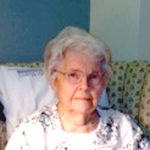
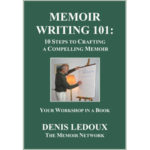 Compelling Memoir
Compelling Memoir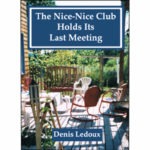 Holds Its Last Meeting, a family that had once placed great stock in a façade of loving one another—and it had “worked” for a long time—sees the façade crumble, showing inner workings badly in need of fixing.
Holds Its Last Meeting, a family that had once placed great stock in a façade of loving one another—and it had “worked” for a long time—sees the façade crumble, showing inner workings badly in need of fixing.